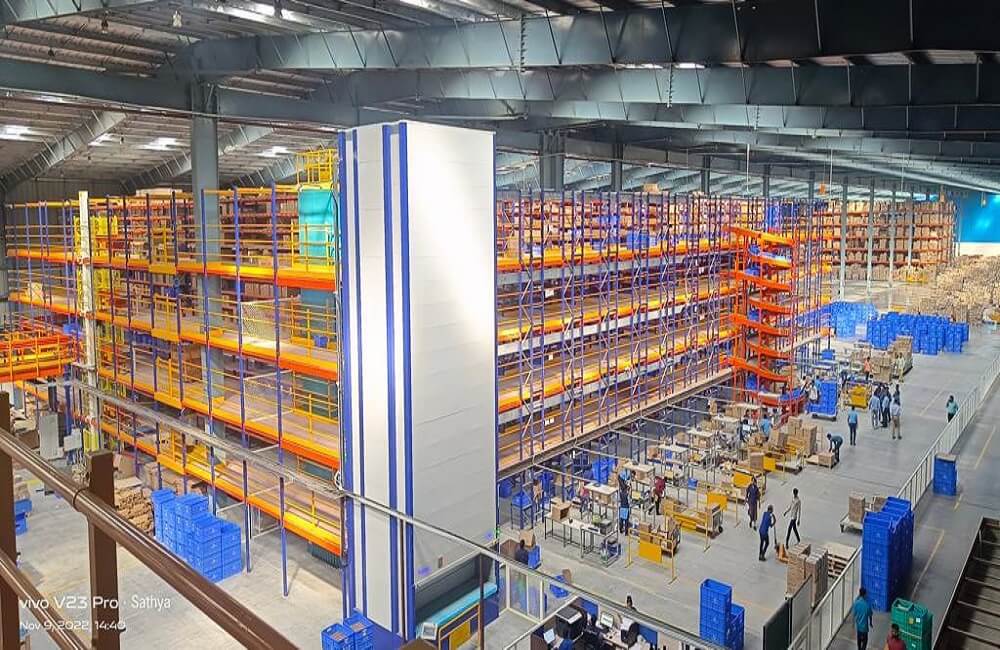In an interview with ET Insights, V-Trans CEO, Mahendra Shah, discusses the pressing need for environmentally friendly solutions in transportation.
What challenges do logistics companies face while adopting sustainable practices?
Due to the innate nature of the business of moving trucks to hundreds and thousands of kilometers and or making the cargo fly with planes, the industry does contribute to the carbon generated by default. However, with growing concern for the environment, it is in everyone’s interest to adopt sustainable practices, as much as possible. In our group, we have inherited the values of caring for everyone around us and giving back to society. V-Trans is a company known for its ethical way of conducting business and we consider it our duty to make all possible efforts to support and build a sustainable and circular economy.
Having said this, there are some constraints that some companies face in adopting sustainable practices –
1. Cost: Many companies face high costs to when switching to more environmentally friendly practices. The upfront costs of purchasing and installing new equipment, such as electric vehicles, solar panels, and wind turbines, can be daunting. Additionally, the cost of converting to renewable energy sources, such as wind and solar, can be expensive.
2. Infrastructure: In order to implement more sustainable practices, logistics companies must have access to infrastructure that supports these practices. This can include charging stations for electric vehicles, access to renewable energy sources, and other necessary resources that may not be adequately available to all.
3. Regulations: The regulations that govern the transportation and logistics industry are complex and can at times make it difficult for companies to adopt sustainable practices. Companies must be aware of the regulations and how they impact their operations.
4. Data: Logistics companies need data to make informed decisions about the best ways to reduce their environmental impact. Tracking and analysing data can be difficult, and companies must invest in the right technology to do so effectively. This can give an idea of the returns in the long term.
5. Mind-set: Adopting environmentally sustainable practices can be seen as a luxury, and some companies may be hesitant to invest in them due to this perception. Companies must work to educate the public about the importance of sustainable practices and the benefits they provide.
What green technologies and tools can assist cargo /logistics companies in their pursuit of carbon neutrality?
Green technologies and tools can assist cargo
1. Electric vehicles: Electric vehicles are becoming increasingly popular for logistics companies, as they provide carbon-free transportation.
2. Renewable energy sources: Logistics companies can reduce their carbon footprint by switching to renewable energy sources such as solar and wind power for their operations.
3. Telematics: This technology can be used to track, monitor, and optimise routes to ensure the most efficient delivery of cargo, resulting in reduced fuel consumption and emissions.
4. Cloud computing: Cloud computing solutions can help logistics companies become more efficient in their operations, as well as reduce their carbon footprint.
5. Green packaging: Companies can reduce their carbon footprint by using eco-friendly packaging and materials. This includes using recycled or biodegradable materials, as well as reducing packaging waste.
6. Eco-friendly fuel sources: Logistics companies can opt for eco-friendly fuel sources such as biodiesel, which produces fewer emissions and is more cost-effective than traditional fuel sources.
At V-Trans we are committed to reducing fleet emissions, and for that, we carry out various methods like not getting into overloading to avoid unnecessary exhaust emissions. We have 25% of our owned fleet as CNG vehicles. As a pioneering step in B2B logistics, we have also piloted electric vehicles for the last mile deliveries and deployed them at 2 locations in Mumbai and Delhi. Our solar energy installation is growing each year and many premises are becoming self-sufficient for energy requirements. With the help of all technology and data, we ensure that our operations are fully optimised.
How can logistics organisations safeguard the safety and well-being of truckers, who are a vital link in sustainable logistics?
Logistics organisations can ensure the safety and well-being of truckers by implementing the following measures:
1. Provide regular driver training and education on the importance of safe driving practices and how to properly handle hazardous materials.
2. Implement regular vehicle maintenance to ensure truck safety and efficiency.
3. Develop and implement a comprehensive driver safety program that includes drug and alcohol testing, fatigue management, and safe driving techniques.
4. Create a strong safety culture that rewards and recognises drivers for safe driving practices.
5. Invest in technology such as GPS tracking systems, dash cams, and cameras that monitor the driver’s behaviour to reduce risk and provide need-based counselling and training.
6. Provide adequate rest stops and comfortable working conditions for drivers.
7. Ensure drivers have access to quality healthcare and provide mental health resources if needed.
8. Provide financial assistance to help drivers with the cost of living.
9. A unique initiative like our group has taken – Dignity to Drivers – where it is ensured that they are treated with the utmost respect that they deserve. Such programs help immensely in uplifting their morale and thus being more aware, mindful, and responsive on how they drive.
Why do many organisations view sustainability more as an expense than an investment?
This is pure short-sightedness and nothing else. The situation is alarming, and we must know that this planet is something that has given us everything and if we fail to conserve it today, there will be no tomorrow. Also, we must think about the environment and what we will leave for future generations. As our responsibility, we all must contribute towards a better tomorrow.



